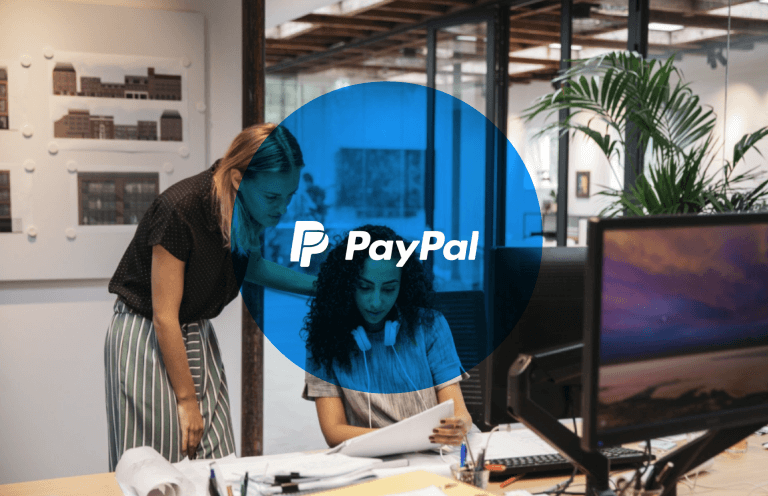Want financially resilient hourly employees? Follow PayPal’s lead
PayPal CEO Dan Schulman is not the first business leader to recognize the impact of employee financial stress. But he is among the few dedicating themselves to solving it. Joining Chipotle CEO Brian Niccol on CNBC’s Squawk Box, Schulman called the large percentage of American workers who struggle to pay bills each month “a national crisis.”
The data backs Schulman up. More than 60% of employees said their financial stress has increased since the start of COVID-19 according to PwC’s 2021 Employee Financial Wellness Survey. Even more alarming? Financial stress already dominated employees’ lives before the pandemic, more than even stress from relationships or health concerns.
All this financial stress drags down more than productivity and engagement. Employees’ mental health suffers, too. BrightPlan’s 2021 Wellness Barometer Survey report estimates employers collectively lose $4.7B per week. That’s based on financially stressed employees reporting they work 15.3 hours per week at a reduced level of productivity and engagement. As for their mental health, 30% of employees said it’s gotten worse in the same survey.
PayPal offers a strong example of how businesses can relieve workers’ financial stress in a way that benefits both employer and employee. The company took a candid look at the stress its hourly and entry-level workers were under. It then identified a goal that would drive impact for both sides and supported it by launching the Employee Financial Health program.
The initiative helped employees take control of their financial lives — from enhancing access to health care to offering new financial benefits through Even — and drove measurable improvements across productivity and engagement.
1. Find what’s holding your employees back from better financial health
PayPal discovered in 2019 that despite above-market wages, a large portion of its hourly and entry-level employees — about 30% of PayPal’s workforce at the time — had trouble paying bills each month. The company also discovered that employees’ struggles were less about emergencies like medical bills, and more about unexpected expenses of the everyday kind.
PayPal began realizing this when it looked at requests from its Employee Relief Fund. Set up in 2017, the fund provides immediate assistance to employees facing hardship due to an unforeseen, life-altering personal event.
“We started to notice that people were coming in for things like car repairs and small home repairs. Those are not insignificant, but it’s not a $10,000 medical bill,” Global Payroll Lead Traci Memmott said. “Those types of expenses where people just needed extra cash for an extra expense in a month pointed us in the direction of helping our people be able to get some money more frequently.”
To understand how it could better fulfill its mission internally to employees, PayPal dedicated 2019 to understanding the financial stress its hourly and entry-level employees were under. Its efforts included:
- Surveying PayPal’s global customer operations function.
- Leading a series of roundtables with PayPal employees.
- Studying industry best practices on employee financial health.
This analysis led PayPal to a core metric leaders could focus on for improving employees’ financial resilience: net disposable income, or NDI.
2. Identify a specific, measurable goal tied to employees’ financial health
PayPal targeted net disposable income (NDI) as a core metric of financial health because it shows how much money employees have left after taxes and living expenses. A higher NDI means employees have an easier time escaping living paycheck to paycheck and avoiding predatory solutions like payday loans or high-interest credit cards that drive cyclical debt.
Analysis showed that hourly and entry-level employees at some U.S. locations averaged 4–6% NDI, so PayPal set a goal to get all employees to at least 20% NDI. Doing so would help team members better handle the unexpected expenses that pop up between paychecks. It would also put employees in a better position to save. That means they could bounce back from emergencies with money they already have.
3. Make changes that align with your mission and culture, and show the C-suite supports them
PayPal’s mission is to democratize financial services for everyone, regardless of background or economic standing. That mission applies just as much to its employees as its customers. So whatever solution the company rolled out to improve workers’ financial health, it had to meet the same integrity PayPal put into its consumer products.
In October of 2019, CEO Dan Schulman laid the groundwork for PayPal’s Employee Financial Health program by announcing four changes for 2020:
- Lower the cost of health care benefits.
- Make every full-time employee a shareholder.
- Raise wages where appropriate.
- Offer new financial education and counseling programs.
PayPal predicted these changes would get employees to 16% NDI within a year, going a long way toward achieving at least 20% NDI across its workforce. What’s especially noteworthy is how PayPal approached benefits, compensation, and financial tools holistically, instead of trying to drive impact through standalone changes.

Source: Even
4. Commit to employee financial health as a responsive, ongoing effort
PayPal envisioned its Employee Financial Health program as something that would continually evolve alongside employees’ changing financial realities. Its first challenge came right away in COVID-19. The pandemic presented a challenge to the results PayPal’s leaders predicted.
In response to the new wave of financial stress brought by COVID-19, PayPal expanded its program by:
- Issuing a second round of “wellness grant” equity awards to those who also received an initial grant.
- Launching earned wage access (also known as EWA or on-demand pay) to all U.S. employees through Even, and equivalent services to employees in other markets.
- Stipends to offset remote working costs for eligible employees.
By expanding the Employee Financial Health program in response to COVID-19, PayPal not only improved its workforce financial health during the pandemic, but is also closing in on its goal of 20% NDI:
- Up to at least 18% NDI across locations.
- $1.3M in on-demand pay requests processed.
- $700+ in emergency savings within six months among employees who engaged with the full Even platform.
“We’re very pleased as well with the level of savings that people have accumulated over the 8–9 months that we’ve had Even in place,” Memmott said. “The reason we wanted to partner with Even was their focus isn’t on continuing instant pay forever. It’s actually about getting people to a space where they don’t need to.”
PayPal has seen knock-on effects from employees’ stronger financial health, too. These include improved employee sentiment, plus more team members expressing intent to stay. Enrollment in health care benefits has gone up, as have upgrades to existing plans. More team members are taking advantage of PayPal’s 401(k) benefit and employee stock purchasing program, too.
Follow PayPal’s journey to making employee financial health a C-suite priority
PayPal isn’t stopping its mission to improve workforce financial health. Internally, the company plans to continue evolving its program, including launching more financial benefits through Even such as savings interest currently at 2X the national average*. Externally, PayPal CEO Dan Schulman wants to help other companies build their own financially resilient workforces.
To do that, PayPal partnered with JUST Capital and the Financial Health Network to launch the Worker Financial Wellness Initiative. Companies committed to the first cohort — Chipotle, Chobani, Even Prudential Financial, Verizon — represent approximately 260,000 workers. Each employer agrees to conduct at least one financial wellness assessment of its workforce within a 12-month period. They’ll learn about their employees’ unique financial vulnerabilities, then find solutions that drive long-term financial resilience across their workforces.
To learn more about the Worker Financial Wellness Initiative, visit JUST Capital or the Financial Health Network.
To learn more about benefits for building a financially resilient workforce, visit Even.com.
*0.125% APY as of 28/10/21. Compare to the national rate. APY is variable and may change any time or after account opening. Powered by Cross River Bank, Member FDIC.









